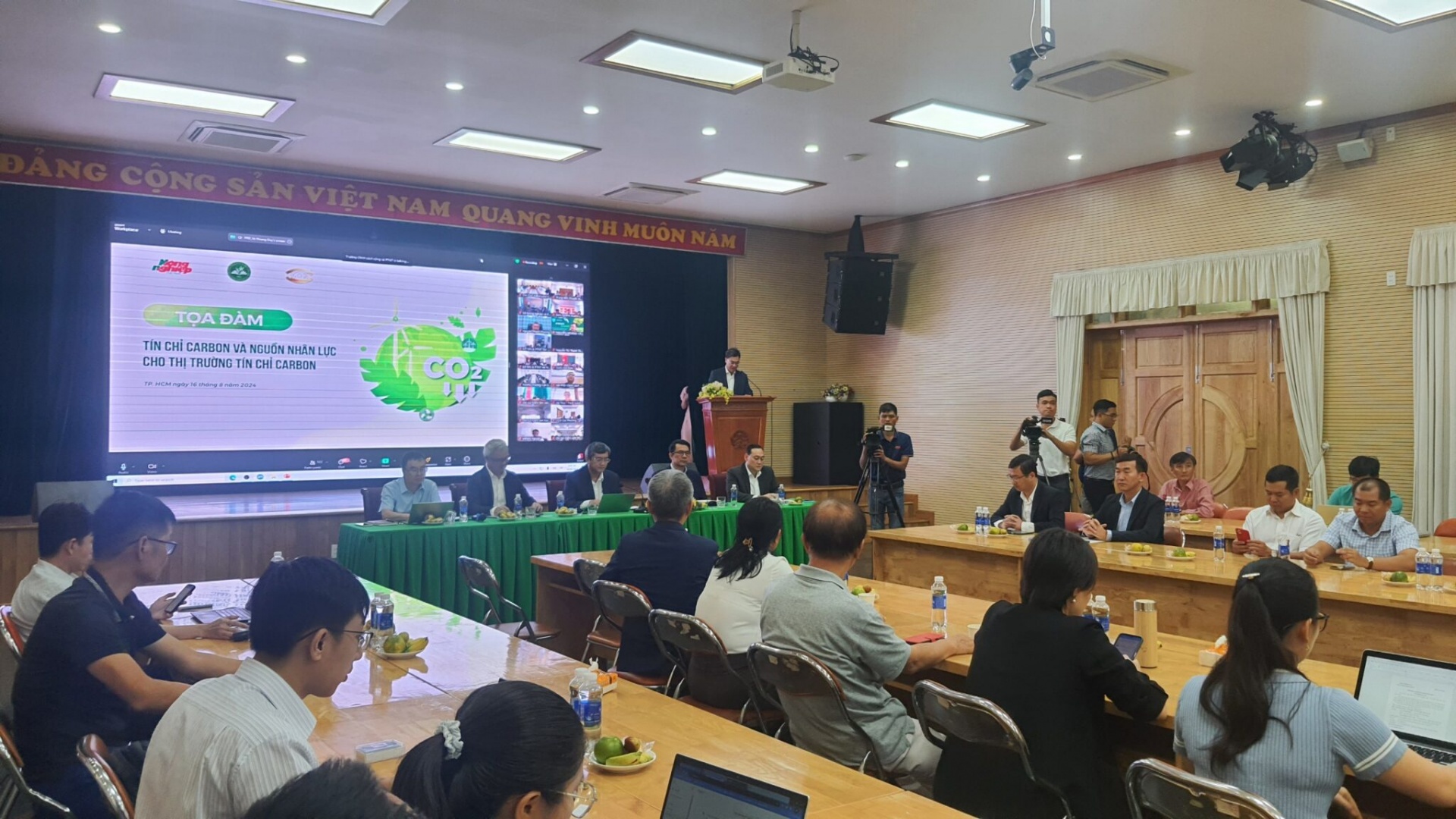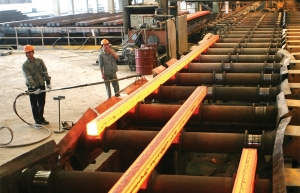Vietnam needs skilled workers to drive carbon credit market growth
 |
At a seminar on August 16, focusing on the carbon credit market and the workforce required to operate it, experts shared their insights into this promising sector.
Vietnam reached a significant milestone last year by successfully transferring over 10 million carbon credits, generating more than $50 million in revenue. This achievement has fuelled growing interest among organisations, individuals, and local governments in the country’s emerging carbon credit market, which is widely recognised for its vast potential.
To capitalise on this momentum, the Vietnamese government, along with relevant ministries and agencies, is actively working to establish a robust legal framework for the carbon credit market. In tandem with these efforts, stakeholders are placing increasing emphasis on training and developing the necessary human resources to support this evolving sector.
Dr. Nguyen Trung Dong, principal of the School of Public Policy and Rural Development under the Ministry of Agriculture and Rural Development, highlighted Vietnam’s progress in this area.
"Vietnam has already issued key regulations, such as Decree No.06/2022/ND-CP dated January 7, 2022 on greenhouse gas (GHG) emission reductions and ozone layer protection," said Dong.
He further explained that the ministry is currently implementing initiatives like the ERPA forest credit trading agreement and a sustainable high-quality rice development scheme, both aimed at reducing the nation’s carbon emissions.
However, Dong also noted the challenges ahead, remarking, "Despite the enormous potential of Vietnam’s carbon credit market, we are currently facing numerous challenges. Each industry and sector within this market has its unique characteristics, making it imperative to educate and enhance understanding of the carbon absorption and emission reduction capabilities of different plant species."
This sentiment was echoed at a recent forum by Prof. Vo Xuan Vinh, director of the Institute for Business Research.
Vinh reaffirmed the government's commitment to reducing GHG emissions, citing Vietnam's active role in global climate initiatives.
"Vietnam demonstrated its determination to tackle climate change at COP26 in 2021, and continues to fulfil regional energy obligations through participation in international organisations such as the Greater Mekong Subregion Cooperation, APEC, and the Asia Climate Action Alliance," Vinh said.
"To achieve green development, human beings must be at the centre," he added.
Vinh went on to call for strategic communication and the development of human resources across various sectors to support this vision.
In the same vein, Cao Tung Son, director of the Centre for Natural Resources and Environmental Monitoring at the Ho Chi Minh City Department of Natural Resources and Environment, underscored the pressing demand for specialised expertise in reducing carbon emissions as the city pivots towards a green economy.
"To meet our ambitious goals for emissions reduction and sustainable development, Ho Chi Minh City requires experts in areas such as emissions assessment and reporting, energy management, emissions reduction technologies, green finance, and regulatory frameworks," Son remarked.
He noted that Ho Chi Minh City is already experiencing the effects of climate change, including rising temperatures, shifting rainfall patterns, flooding, and sea-level rise. These challenges necessitate significant investments in financial resources, technology, and skilled personnel to achieve the city's Low Carbon Action Plan objectives.
"The development of a skilled workforce for low-carbon initiatives is both an urgent and strategic priority," Son emphasised. "Investing in human capital is not only crucial for reducing carbon emissions but also essential for driving the transition to a sustainable green economy," he concluded.
Looking ahead, Vietnam is preparing to take a significant step in the carbon credit market by piloting a carbon credit trading platform sometime next year.
Dr. Le Hoang The, CEO of The VOS Ecosystem Company, stressed the urgency of building a skilled workforce to support this initiative.
"We need to train approximately 150,000 professionals with in-depth knowledge of appraisal mechanisms, documentation processes, and the assessment and declaration of various carbon credits," said The.
The identified the training of internationally certified carbon appraisers as a critical element in ensuring the effective operation of Vietnam’s carbon credit market, while underscored the necessity of establishing a cadre of professional brokers to facilitate carbon trading.
"Businesses looking to participate in the carbon credit market must prepare knowledgeable human resources capable of handling carbon inventory, declaration, and related issues, " The added.
Given the nascent and unprecedented nature of the carbon market in Vietnam, experts agree that companies entering this arena must approach it with thorough preparation.
Moreover, if Vietnam is to successfully develop its carbon credit market in the future, prioritising human resource training will be essential. The path forward may be challenging, but the rewards for early movers in this sector could be substantial.
 | Investment in Vietnam’s carbon market: the opportunities and the challenges The growing demand for carbon credits ranks high in Vietnam. As global awareness and regulatory pressures on climate change increase, the demand for carbon credits is expected to rise. |
 | Carbon market pilot around the corner The local authorities are on track to complete a carbon credit market development scheme in Vietnam, which is careful preparation for establishing a pilot carbon trading platform from next year. |
What the stars mean:
★ Poor ★ ★ Promising ★★★ Good ★★★★ Very good ★★★★★ Exceptional
Related Contents
Latest News
More News
- EVN awards EPC contract for Quang Trach II LNG project (February 10, 2026 | 09:00)
- Canada backs Vietnam’s green transition with AGILE project (February 09, 2026 | 17:41)
- Momentum is real in the race to net-zero emissions (February 02, 2026 | 08:55)
- $100 million initiative launched to protect forests and boost rural incomes (January 30, 2026 | 15:18)
- Trung Nam-Sideros River consortium wins bid for LNG venture (January 30, 2026 | 11:16)
- Vietnam moves towards market-based fuel management with E10 rollout (January 30, 2026 | 11:10)
- Envision Energy, REE Group partner on 128MW wind projects (January 30, 2026 | 10:58)
- Vingroup consults on carbon credits for electric vehicle charging network (January 28, 2026 | 11:04)
- Bac Ai Pumped Storage Hydropower Plant to enter peak construction phase (January 27, 2026 | 08:00)
- ASEAN could scale up sustainable aviation fuel by 2050 (January 24, 2026 | 10:19)

 Tag:
Tag:


















 Mobile Version
Mobile Version